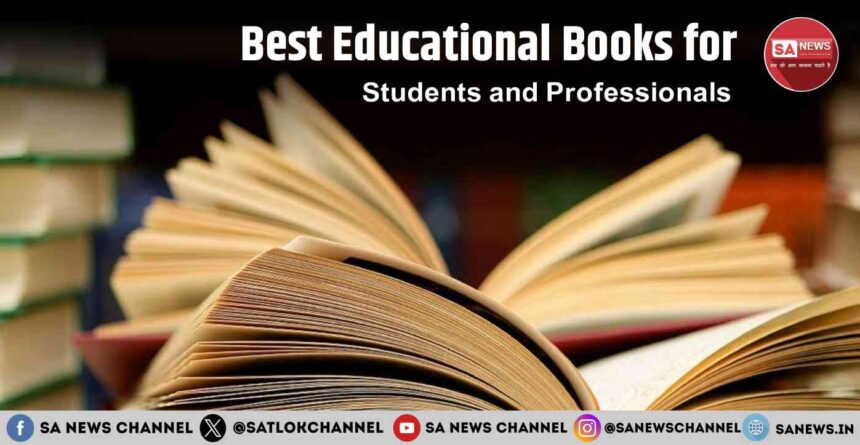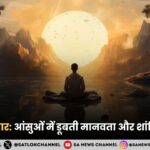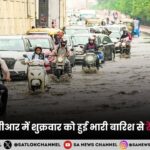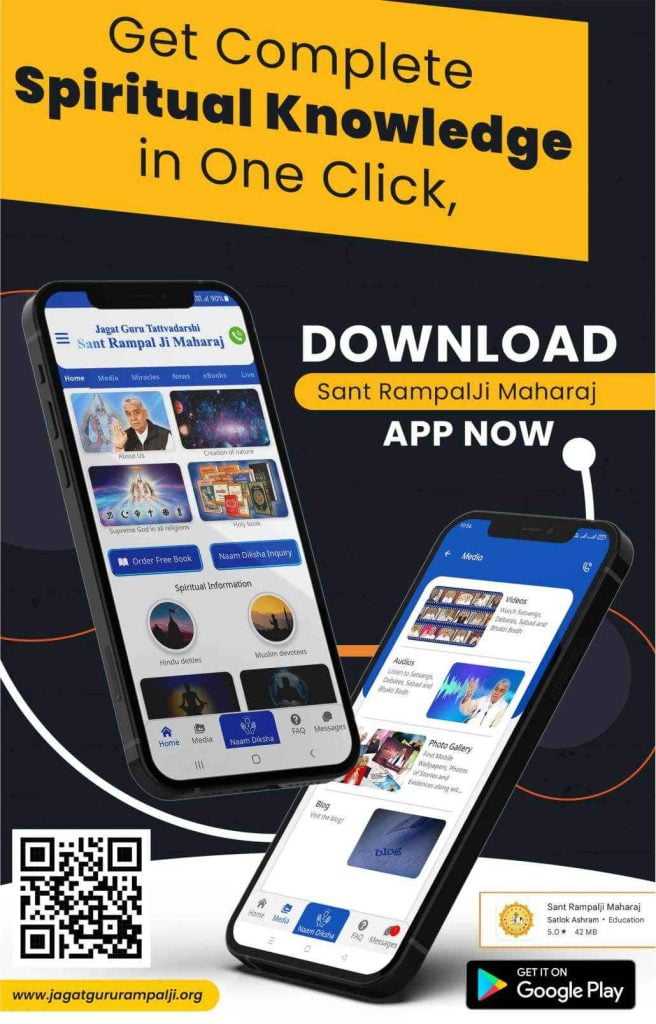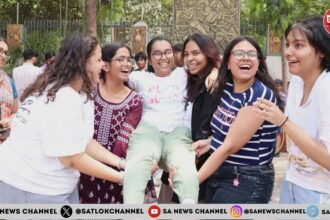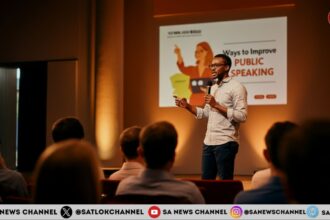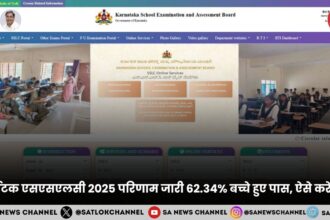Best & Top Educational Books: Educational books are a cornerstone for lifelong learning, offering knowledge and insights far beyond the classroom. For both students and professionals, the right books can sharpen critical thinking, inspire innovation, and provide deeper understanding in various domains. Reading not only improves vocabulary and cognitive skills, but also broadens one’s worldview. From timeless classics that have educated generations to trending new releases that reflect today’s cutting-edge ideas, the spectrum of educational books is vast.
In this guide, we highlight the best educational books across different education lines – primary, secondary, and especially higher education – categorized by field (Technology, Humanities, Science, Arts, and more). Whether you’re a college student seeking supplemental learning or a professional aiming to expand your horizons, these books offer valuable lessons and inspiration.
Technology (Computing & Engineering)
Clean Code by Robert C. Martin
A classic for software developers, Clean Code teaches how to write code that’s simple, readable, and maintainable. Martin breaks down key practices in naming, structuring, and refactoring, with real examples. This book remains a must-read for students and professionals aiming for craftsmanship in programming and high-quality software design.
Key Highlight: Practical techniques for writing professional-grade, clean, and efficient code.
The Innovators by Walter Isaacson
A sweeping history of the digital revolution, The Innovators profiles pioneers like Ada Lovelace, Alan Turing, Steve Jobs, and Bill Gates. Isaacson connects how their collective innovations shaped our technological world. It’s a highly readable book that shows how progress is often a team effort spanning decades — essential reading for tech enthusiasts and professionals alike.
Key Highlight: Inspires by showing real-world teamwork and creativity behind major tech milestones.
AI Superpowers by Kai-Fu Lee
This 2018 bestseller explores the AI boom in the U.S. and China, highlighting how both superpowers are reshaping industries. Lee, a leading AI expert, offers a clear, accessible view of AI’s impact on work, economy, and society. AI Superpowers is a valuable guide for students and professionals wanting to stay ahead in the age of AI transformation.
Key Highlight: Sharp insights into how AI will change jobs, businesses, and global power dynamics.
Also Read: Top Smart Gadgets To Aid Everyday Living
(According to expert-curated lists, such as those on FiveBooks, staying current in tech requires reading not only practical guides but also books on the ethics and history of technology.)
Humanities (History, Philosophy & Social Sciences)
The humanities deepen our understanding of society, culture, and ourselves. Here are some top educational books that still resonate with higher education learners:
Sapiens: A Brief History of Humankind by Yuval Noah Harari
An engaging, interdisciplinary journey through human history, from prehistoric times to today. Harari links anthropology, biology, and social evolution to explain how Homo sapiens shaped civilization.
Key Highlight: Connects science, culture, and belief systems to our shared past.
The Republic by Plato
A foundational work of philosophy and political thought, exploring justice, education, and ideal societies through Socratic dialogue. The Republic remains a key text in philosophy, political science, and literature courses worldwide.
Key Highlight: Timeless insights into virtue, governance, and ethical leadership.
Man’s Search for Meaning by Viktor E. Frankl
A powerful memoir blending psychology and survival, reflecting on life in Nazi concentration camps and the human quest for purpose. Frankl’s theory of logotherapy highlights how meaning fuels resilience.
Key Highlight: Teaches how finding purpose can drive strength even in the darkest times.
(As shown in expert lists, mixing classic texts with modern narratives builds a broad, enduring humanities education.)
Science (Natural & Physical Sciences)
Science books make the wonders of the natural world accessible to all learners. Here’s a curated list for students, professionals, and curious minds:
A Brief History of Time by Stephen Hawking
It is a landmark work simplifying complex cosmological concepts like black holes and time travel. Hawking’s accessible language brought astrophysics to a global audience.
Key Highlight: Inspires curiosity about the universe without heavy mathematics.
A Short History of Nearly Everything by Bill Bryson
Bryson’s humorous, readable tour covers geology, physics, chemistry, and evolution, offering a panoramic view of scientific discovery.
Key Highlight: Makes huge scientific topics lively, fun, and easy to understand.
The Selfish Gene by Richard Dawkins
This groundbreaking book reframes evolution through the lens of gene-centered selection. Dawkins also introduced the concept of cultural “memes.”
Key Highlight: A timeless classic explaining evolution and behavior at the genetic level.
The Gene: An Intimate History by Siddhartha Mukherjee
A detailed yet human-centered history of genetics, blending scientific advances with personal stories about inherited illness and ethical dilemmas.
Key Highlight: Explores how genetic discoveries shape science, society, and identity.
(Science literature continues to thrive, with annual picks showing the diversity and relevance of modern science writing.)
Arts (Fine Arts, Design & Creativity)
Arts and creativity are essential to a well-rounded education. These books illuminate art history, visual perception, and the creative process:
The Story of Art by E.H. Gombrich
A classic introduction to art history, from prehistoric paintings to modern art. Gombrich’s clear, engaging style makes it ideal for beginners and students alike.
Key Highlight: Comprehensive yet accessible overview of art’s evolution.
Ways of Seeing by John Berger
Based on his BBC series, Berger challenges traditional views of art and visual culture, exploring how images are shaped by context and ideology.
Key Highlight: Sharpens critical thinking about visual media and art history.
Understanding Comics by Scott McCloud
A creative deep dive into visual storytelling, exploring how comics and other visual narratives communicate meaning.
Key Highlight: Breaks down the universal grammar of images and sequential art.
Steal Like an Artist by Austin Kleon
A motivational guide that shows how creativity builds on influence, transformation, and practice — not “pure originality.”
Key Highlight: Practical tips for unlocking creativity and building artistic habits.
Other Fields & Spiritual Knowledge (Business, Personal Development, and More)
These books offer lessons that cross disciplines — valuable for academic growth and professional success:
Educated by Tara Westover
An inspiring memoir about breaking free from isolation to pursue education, culminating in a Ph.D. from Cambridge.
Key Highlight: A powerful testament to resilience, learning, and self-discovery.
How to Win Friends and Influence People by Dale Carnegie
A timeless guide to communication, persuasion, and relationship-building — skills crucial in every career.
Key Highlight: Practical lessons on emotional intelligence and interpersonal success.
Gyan Ganga by Saint Rampal Ji Maharaj
This spiritual book offers profound insights into the essence of true devotion and the path to salvation, drawing from scriptures like the Vedas, Gita, Quran, Bible, and Guru Granth Sahib. Authored by Saint Rampal Ji Maharaj, it dispels myths and clarifies misconceptions about spirituality, emphasizing the worship of the Supreme God, Kabir, as the key to liberation from the cycle of birth and death.
Key Highlight: A comprehensive guide to authentic spiritual knowledge, uniting core teachings of major religions for personal and divine realization.
Jeene Ki Raah (Way of Living) by Saint Rampal Ji Maharaj
A motivational and spiritual masterpiece, Jeene Ki Raah provides practical guidance for leading a fulfilling life rooted in devotion and moral values. Written by Saint Rampal Ji Maharaj, this book simplifies complex spiritual concepts and offers actionable advice to overcome societal vices, foster family harmony, and achieve inner peace.
Key Highlight: Inspiring teachings that promote de-addiction, social reform, and spiritual awakening for a prosperous and meaningful life.
Atomic Habits by James Clear
A modern self-improvement classic, offering simple strategies to build good habits and break bad ones with proven psychological techniques.
Key Highlight: Actionable methods to drive daily improvement and long-term success.
Thinking, Fast and Slow by Daniel Kahneman
Explores how intuitive and analytical thinking shape decisions, revealing common biases and how to counter them.
Key Highlight: Critical insights into human judgment, vital for students and professionals alike.
(Broad reading builds not just knowledge but personal effectiveness, leadership, and life skills.)
Books That Enlighten the Mind and Awaken the Soul
In the journey of education, whether academic or professional, it is essential to nurture not only intellectual growth but also spiritual wisdom and moral values. The books listed above span various domains — technology, humanities, science, arts, personal development, and spirituality — offering learners a well-rounded foundation for lifelong success. Among these, the spiritual guidance of Sant Rampal Ji Maharaj stands out by bringing clarity to life’s deepest questions and revealing the true purpose of human birth.
His teachings in Gyan Ganga and Jeene Ki Raah harmonize the wisdom of all major scriptures, providing a universal path toward peace, purpose, and liberation. When modern knowledge is combined with true spiritual understanding, students and professionals alike can lead lives that are not only successful but also deeply meaningful. This integration of education and devotion paves the way for a more conscious, balanced, and fulfilling life.
FAQs on Best Educational Books for Students and Professionals in 2025
Q1: How do I pick the right educational book?
Choose based on your field, skill level, and learning goals. Prefer well-reviewed books by credible authors.
Q2: What makes a book timeless?
A book becomes timeless when its ideas stay relevant, insightful, and widely studied over decades.
Q3: How can I check if a new book is credible?
Look at the author’s expertise, publisher reputation, and reviews from trusted sources.
Q4: Should I read books outside my main field?
Yes! Cross-disciplinary reading broadens thinking, creativity, and problem-solving skills.
Q5: How can I fit more reading into a busy schedule?
Read for 20–30 minutes daily. Try audiobooks, short chapters, or Pomodoro (25-min focus sprints).


